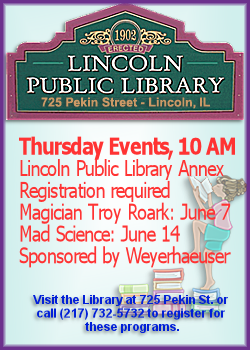 Review by Review by
Richard SumrallIn his new book, "Clark Smart Real Estate,"
consumer advocate Clark Howard writes, "If you're looking for a book that
will tell how to get rich quick in real estate, how to make money by buying
houses with no money down, watching their value soar, and selling them
without ever living in them, you have the wrong book." Instead, Howard's
five basic principles help potential investors sort through the complexities
of the real estate market. Those principles -- buying, selling, investing,
financing, and taxes and insurance -- combined with his "save more, spend
less and avoid ripoffs" philosophy can help you achieve success in this
lucrative market.

Buying
Using good judgment is the key to buying a house -- in other words, don't
become emotional about a property. Generally, the most important
considerations in house buying are purchasing new houses versus used houses,
considering condominiums, buying by the season, buying a fixer-upper and
avoiding a buyer's frenzy on a particular property. Other concerns are the
school district in which the house is located, flood plain and other
geographic issues, property encroachments, and proximity to train tracks,
landfills or high-traffic areas.
Selling
According to Howard, selling a house can be a nerve-wracking experience
that runs the gamut of emotions: pride, anxiety, fear and uncertainty. When
you are ready to sell a house, you first decide whether to sell it yourself
or hire an agent. You also want to be aware of the "two-house ballet."
Howard describes this as buying and moving into a new house and then trying
to sell the old house you still own. He cautions against making this
mistake. You will be in the unenviable position of carrying two mortgages;
you will still have the constant repair and maintenance expenses of the old
house; and you will have the financial burden of the taxes and insurance on
two properties. All of this can be compounded if the old house is a "slow
seller," a property that can sit on the market for months or years. When
you're selling a house, you want to avoid the temptation to sell by a
certain date; you should also investigate the selling prices of the other
homes in the neighborhood, determine the improvements the house needs to
make it market-ready and consider renting out rather than selling the house.
[to top of second column]

 |

Investing
Buying and selling real estate is a proven investment opportunity
that can increase one's wealth. Aside from the "buy low, sell high"
philosophy, investors can use houses to generate income through the
rental process. This means you have to decide whether you want to
become a landlord. There are many pros and cons to becoming a
landlord. Your mortgage payment on the rental property is usually
covered by the rental income; your equity grows over time as your
depreciation is reduced; and some of your rental income may be
considered tax-free (again because of depreciation). On the
downside, renters may miss their payments and can cause considerable
damage to the house. Failure to conduct a credit check on
prospective tenants -- a legitimate business practice -- will not
alert you to any potential trouble in collecting the rent. There's
also the issue of temperament: Do you have what it takes to be a
landlord? Can you handle the late-night calls regarding problems at
the house? Do you have the nerve to evict nonpayers, even if they
have a family? Investing in real estate for rental income and equity
often means deciding between quick profits versus long-term gains,
the amount of money you're willing to risk, and how much rental
competition you will face in a given locality.

Financing
The first question in financing a real estate transaction is: How
will you pay for the property? The standard finance tool is the
mortgage. When shopping for a mortgage it's important to know what
kind of loan best suits your needs, how to price different mortgage
offers (by interest rate, points and closing costs), and how to
select the best lender. According to Howard these choices should be
influenced by your personal financial circumstances, how long you
plan to own the property and the amount of risk you are willing to
assume. Your best mortgage deal will be based in part on your
personal credit rating and how much you can afford in monthly
payments.
Taxes and insurance
Taxes and insurance can adversely affect the profit potential of
any real estate deal. In looking at the property taxes on a house
you must understand that the actual tax amount may not be reflected
in the seller's disclosures. Property taxes can increase if the
property has a higher closing sale price or local officials conduct
a new assessment. Insurance policies usually contain coverage for
the homeowners, mortgage and title. Adequate coverage takes into
consideration the physical location of the house and its
susceptibility to natural disasters, the rebuilding costs in case of
fire, and the claims history on the property.
"Clark Smart Real Estate" is a excellent primer for anyone trying
to understand the ins and outs of the real estate market and is
recommended for its "practical and information-packed answers to
common questions anyone interested in real estate might have."
[Text from file received
from Richard Sumrall,
Lincoln Public Library District] |